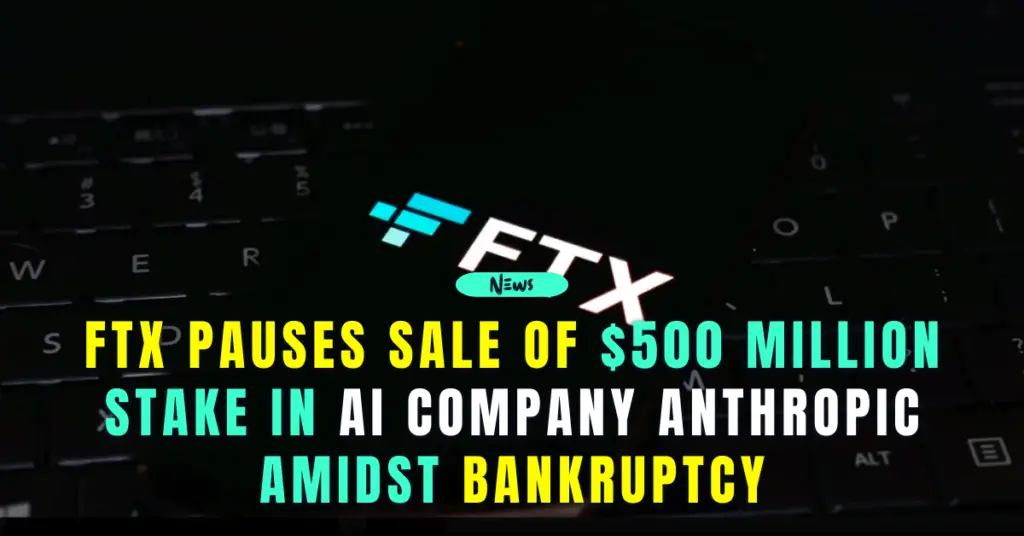文章来源于互联网:FTX Pauses Sale of $500 Million Stake in AI Company Anthropic Amidst Bankruptcy

Embattled cryptocurrency exchange FTX has abruptly stopped the sale of its stake in AI firm Anthropic, valued over $500 million, as reported by Bloomberg on Tuesday.
FTX had filed for Chapter 11 bankruptcy protection last November, followed by allegations against co-founder Sam Bankman-Fried for money laundering, fraud, and conspiracy to commit wire fraud.
Court documents filed recently alleged that Bankman-Fried and other high-ranking executives at FTX were involved in commingling over $402 million in customer funds.
The collapsed exchange is reported to owe customers around $8.7 billion, with $6.4 billion in the form of fiat currency and stablecoins.
FTX’s Efforts to Repay Creditors
In January, FTX was given the green light by a federal judge to sell off some assets to repay creditors.
Among the assets FTX has offloaded is derivatives trading platform LedgerX, sold for $50 million – a stark loss compared to the $300 million FTX paid for LedgerX in 2021.
Earlier this month, FTX, with the assistance of financial services firm Perella Weinberg Partners, had shown intentions to offload its shares in Anthropic as part of its clawback strategy to repay creditors.
A clawback in bankruptcy is a legal process where a bankruptcy trustee retrieves property or payments made by the company prior to filing for bankruptcy.
Anthropic’s Success Story
Founded in 2021 by former OpenAI employees, Anthropic has become a front-runner in the current AI boom.
The firm launched Claude AI in March after receiving a $400 million investment from Google earlier this year, supplemented by another $450 million in Series C funding in May, led by Spark Capital.
In May, Anthropic made significant advancements in Claude AI, including the development of a rule-set based on the Universal Declaration of Human Rights, designed to promote ethical behavior and discourage undesirable actions.
A Pause on the Sale
The unexpected halt in the sale of Anthropic shares came after several potential buyers had evaluated private information about the stake.
Anthropic, which is privately-held, is currently valued at $4.6 billion, according to Semafor’s June report.
Buyers in the secondary market for shares in private companies have been eager to acquire stakes in Anthropic, even at a premium, indicating the significant potential of this AI startup.
FTX’s stake in Anthropic, amounting to a $500 million investment made by FTX and Alameda, is among FTX’s most coveted assets.
While the reason for this sudden halt remains undisclosed, it marks another twist in FTX’s ongoing legal and financial turmoil.
